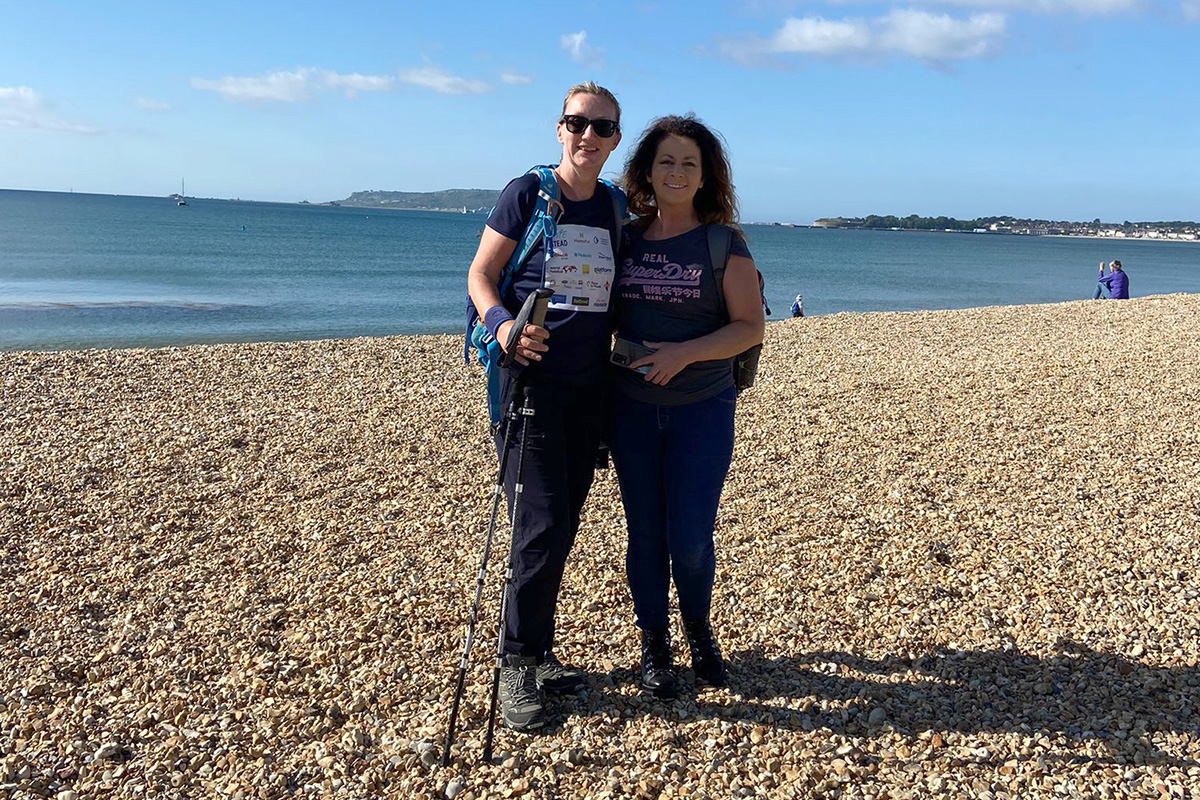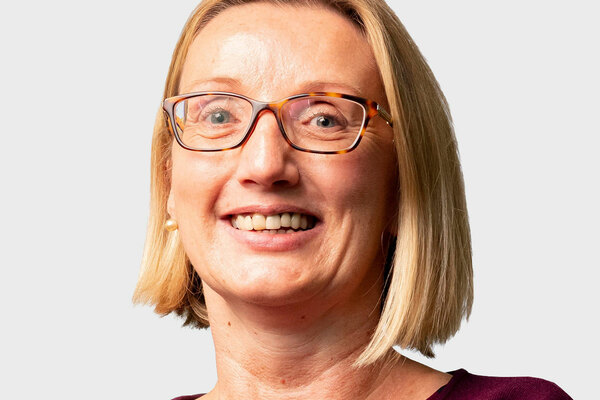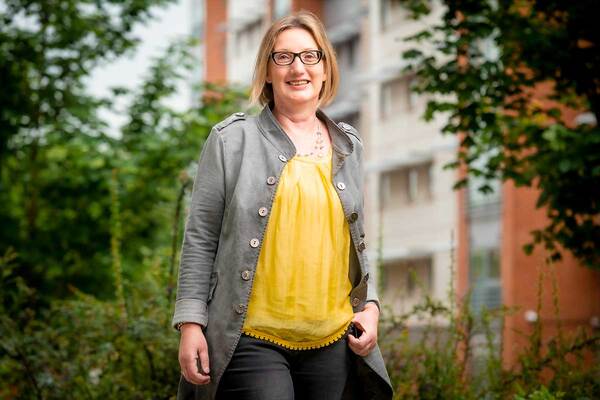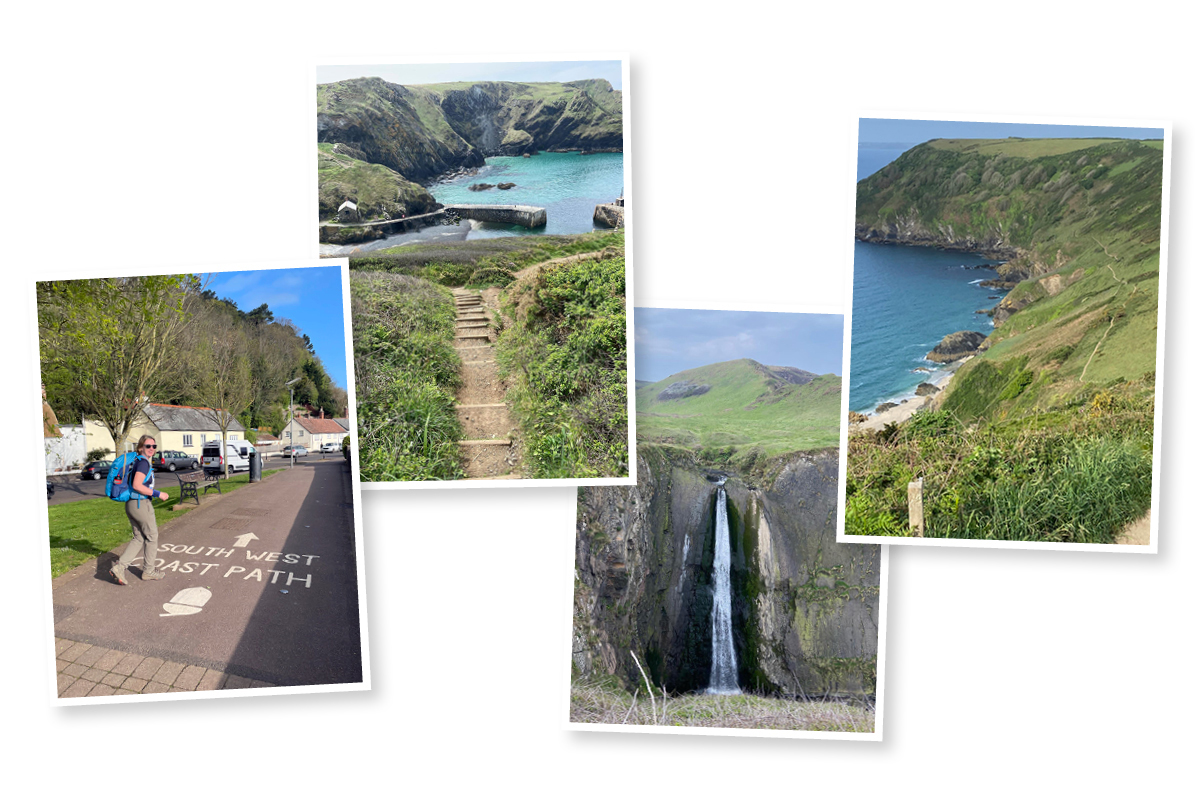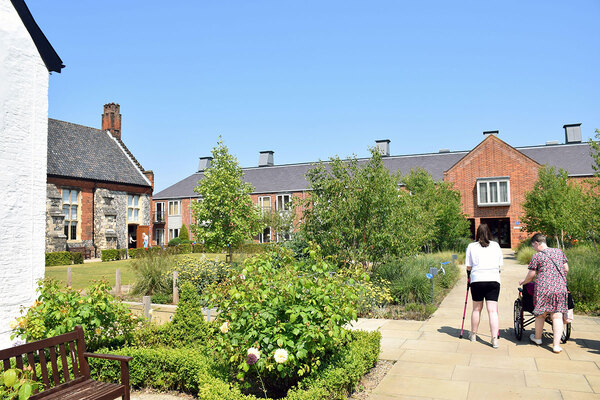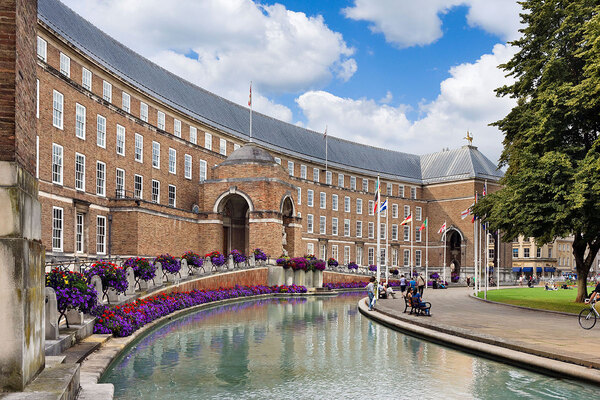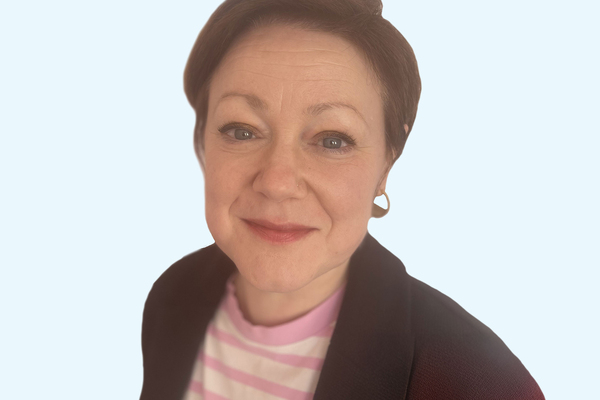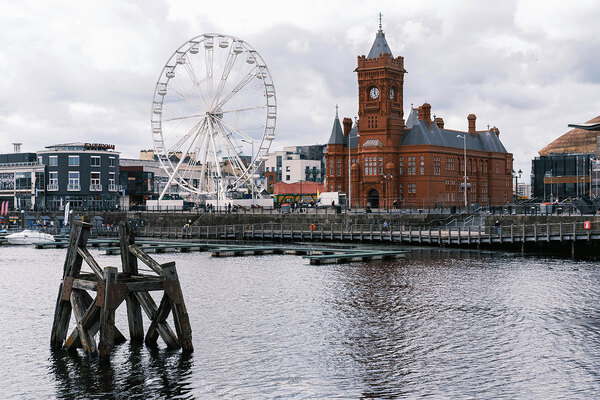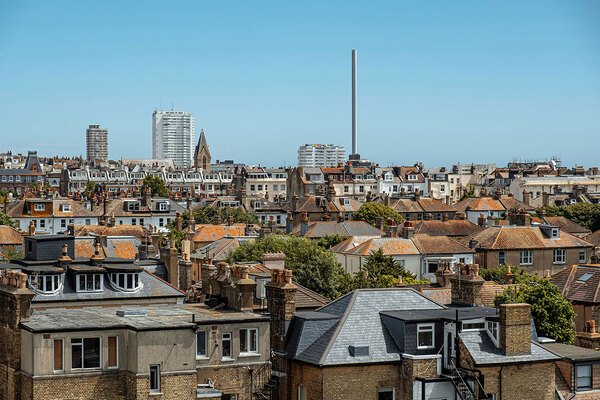Serendipity is a 630-mile walk along the coast
Journalist Denise Harrison has been homeless, and the memoir The Salt Path is very dear to her. Jo Richardson, president of the Chartered Institute of Housing, is walking the 630-mile South West Coast Path – a hike inspired by the same book – to raise money and awareness for her Homeful campaign. What happened when they met? Ms Harrison documents a meeting of minds
Once in a while, things come along that have the ability to change how we see things (including ourselves) forever. A ‘chance’ encounter, a random conversation, a piece of art – it literally could be anything, but you will know when you have found it, because it will shake you to the core and your soul will start to whisper “How can I help? How can we change things?”
My ‘thing’ was homelessness. It chewed me up and it spat me out, and I will never, ever be the same. It took everything I loved and everything I cared for, put it on a bonfire and made me watch as it burned.
“Today, I am an award-winning writer, best known for hard-hitting content on topics such as homelessness, trauma, mental health and addiction. This is all kinds of cool, because, five years ago, I weighed six stone and I was sleeping on a sofa”
In 2020, I joined a book club. I needed an excuse to get out and meet people, as my post-traumatic stress disorder at times has me living like a hermit and I hadn’t been out for weeks. The guest speaker that day was Raynor Winn, author of The Salt Path, The Sunday Times bestseller. I knew very little about her story, other than that she had once been homeless, and that she and her husband, Moth, had decided to walk a 630-mile stretch of the South West coastline simply because they had nowhere else to go.
So there I was, sitting in a room with 30 other people, drinking tea and dunking biscuits, waiting to hear her speak and completely oblivious to the fact that this woman’s story was about to merge indelibly with my own.
The Salt Path isn’t just a story about homelessness. It is also a story of two people who loved each other completely, trying and failing to hold on to a life they had spent 32 years building together, because they had made a mistake and trusted the wrong person. It is not just a story of injustice, about a legal system that failed them because they didn’t understand the process and so had to hand over their home and their livelihood to pay off a debt that they couldn’t prove they didn’t owe.
‘Home’ is more than just bricks and mortar
It is also not just a story about being brave and stepping into the unknown when you just want to hide in the cupboard under the stairs, praying that the bailiffs will go away and that maybe you will wake up and it will all have been a dream.
It is a story of hope and resilience... a story which proves that just about anything is possible, if you just trust in the process and keep pushing forward.
I would like to think that I am living proof of this.
Today, I am an award-winning writer, best known for hard-hitting content on topics such as homelessness, trauma, mental health and addiction. This is all kinds of cool, because, five years ago, I weighed six stone and I was sleeping on a sofa.
I didn’t go to university to learn how to write. I started to write in a homeless hostel, because, back then, my pen was the only thing that stood between me and a one-way ticket back to hell, and I was trying to cling on to what was left of my sanity. I didn’t just lose my home when I was homeless – somewhere along the way, I totally lost myself.
“It was impossible to forget that sun changes to rain, sleet to hail and light breezes to gale-force winds, and that Raynor and Moth had been out there in all of it with just rucksacks and a tent. There was nothing for them to head home to, because there was no home, there was only the path”
My safety, my security, my sense of “everything is OK in my world” was gone, and in the process of trying to rebuild my life (which is still a work in progress), I came to realise that ‘home’ is so much more than just bricks and mortar.
It is an essence, a feeling, something carried deep inside of you. Without that sense of ‘home’, you can be anxious, unsettled, out of sorts, out of place. This may explain why I could live in a penthouse flat that felt like a prison, and why an old outbuilding felt like the Ritz.
In Homesick: Why I Live in a Shed, Catrina Davies echoes those thoughts. In her incredible book, she shows that you don’t have to live in a house to have a home, and that your sense of belonging has far less to do with a physical construct, and everything to do with how you feel inside. This got me thinking.
Imagine the conversations that could happen between people who have experienced homelessness and those doing everything in their power to eradicate it. Imagine the ideas and the things that could change.
Imagine if no one had to walk the Salt Path, or sleep on a sofa, live in a hostel or lie in a doorway again, because they all had a bed and a home and a semblance of a life, instead of being outed, ostracised, abandoned… alone. Imagine if somebody came along who understood just how important it is not only to be housed, but to actually feel at home, safe in the knowledge that your basic human needs are being met. Imagine how much easier it could be to transition from ‘homeless’ to ‘hopeful’ if this was understood.
“Imagine if somebody came along who understood just how important it is not only to be housed, but to actually feel at home”
Imagine, imagine, imagine…
Meet Jo Richardson, president of the Chartered Institute of Housing, trustee of World Habitat, and co-chair of DMU Women, with a career in housing spanning almost 30 years.
Jo has launched the Homeful campaign, a plan to bring housing organisations and workers together under the same umbrella, to share knowledge and research and raise much-needed funds for organisations such as End Youth Homelessness.
To raise funds, she is walking the entire 630 miles of the South West Coast Path, aka the Salt Path. I feel privileged both to have met her and to have had the opportunity to walk some of the way with her (from Weymouth to Osmington) while researching this piece.
The weather was stunning, the sea and sky were an incredible blue and the air smelled of seaweed drying in the sun. It was the perfect setting for a day trip, safe in the knowledge that my cosy caravan awaited me at the end of the day once I returned home to Cornwall.
But Mother Nature, as we know, has a dark side. It was impossible to forget that sun changes to rain, sleet to hail and light breezes to gale-force winds, and that Raynor and Moth had been out there in all of it with just rucksacks and a tent. There was nothing for them to head home to, because there was no home, there was only the path.
During our walk, we talked about how Jo’s journey to this campaign started in 1991, when, as an 18-year-old, she spent a year in America and volunteered for a charity providing relief to homeless people in New York City, which included working on the soup run.
She realised that, while she was busy with university life and making plans for the future, the people queuing for food in front of her each day, many around the same age as her, weren’t in a position to really plan anything. How could they be, when their main concerns were where their next meal was coming from and where they might sleep that night?
Jo explained that she realised then that, without sanctuary, support and a safe place to be, it is incredibly hard to get a handle on things. In her book, Place and Identity: the Performance of Home, she lists the six components needed to make people feel safe, secure and regain some sense of ‘belonging’: security, safety, affordability, quality of space, privacy of place and connectedness.
‘Salted’
While we walked and over dinner, we had powerful conversations.
We talked about the taxi driver I met in Weymouth, who is currently homeless and has been for months, since her landlady asked for the property back, leaving her working all the hours God sends while separated from her partner. Her stress levels are going through the roof as she finds herself priced out of the rental market due to a rapid rise in Airbnbs.
We talked about Airbnbs decimating whole towns and villages (including my home town in Cornwall), creating an even bigger divide between those who have and those who have not, potentially creating theme parks for the rich while local business owners and workers struggle to keep their heads above water.
“Mostly we talked about the urgent need for more affordable housing and Jo’s ideas for positive change, starting with Homeful”
We talked domestic abuse, substance misuse and the myriad reasons why people might find themselves without a home. But mostly we talked about the urgent need for more affordable housing and Jo’s ideas for positive change, starting with Homeful.
In an ideal world, no one should ever have to experience homelessness. While there is no miracle cure or magic wand, thankfully there are people like Jo – who to me seemed caring and passionate.
I have been through the housing system, as a support worker in an office behind a desk, and as a service user newly in recovery and living in a hostel. I’ve met workers who offer platitudes, who sit and tick boxes as they watch the clock and plan what to have for dinner, seemingly oblivious to what is going on around them.
Very rarely have I come across someone like Jo. She had been walking for 43 days when we met, in all weather and through often-gruelling terrain, on a mission to achieve her goal of instilling a sense of home in those who need it the most.
There is a term in The Salt Path that I absolutely love, and one I would like to leave you with, because it suits Jo perfectly: “salted”. To me it means “touched by”, an indelible mark that means you will never, ever be the same. Jo’s life’s work has “salted” her, like homelessness has salted mine, like it has salted Raynor’s.
My wish is that you read this piece and that you too become “salted” as your own soul stirs and asks, “How can I help? How can we change things?”
You can start by supporting Jo on her quest, either by donating via her JustGiving page, or by creating your own fundraiser by taking part in ‘22 for 22’. Jo is aiming to complete 22 miles a day, and is encouraging everyone to organise their own 22 in 22 activity to fundraise for Homeful.
www.justgiving.com/campaign/homeful
www.cih.org/policy/homeful/get-involved-with-homeful
Jo Richardson will be speaking at Housing 2022. See her CIH presidential address on Thursday 30 June, 2pm, in the Exchange Auditorium
Sign up for the IH long read bulletin
Already have an account? Click here to manage your newsletters
